Asia and Africa profit from Dairy Development Programme
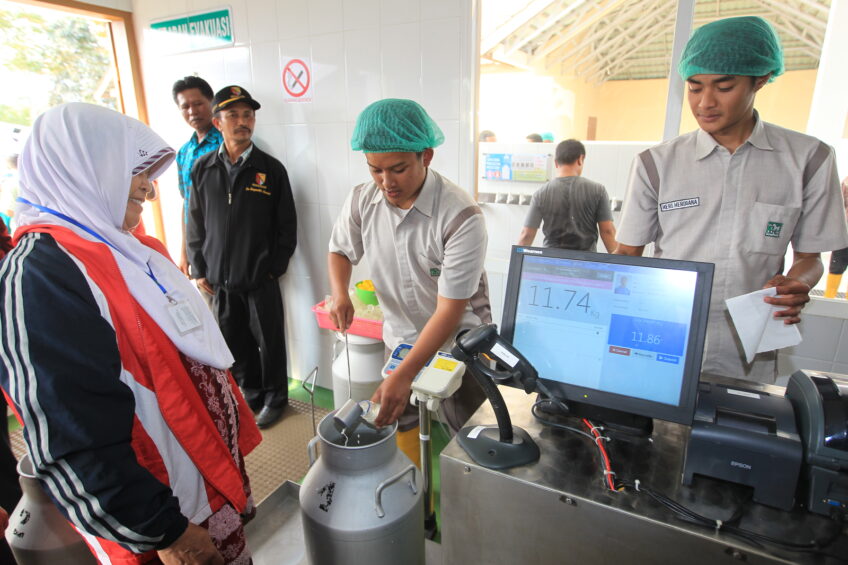
Sybren Attema is the Regional Manager for FrieslandCampina’s Dairy Development Programme and was based in Ho Chi Minh City in Vietnam from 2011 until 2015. He is one of the top speakers at the upcoming World Dairy Summit in Rotterdam, the Netherlands.
Dairy Global caught up with Mr Attema to learn more about how he got involved in the Dairy Development Programme, his expectations of the World Dairy Summit and the challenges for the global dairy sector.
What made you decide to close your dairy farm and to start working for DDP?
“In September 2010, my wife and I decided to close our dairy farming business because we did not have a successor and we wanted to use our experience in developing the dairy sector in emerging economies around the world. In the late 80’s FrieslandCampina set up a Dairy Development Programme (DDP) to help raise the quality and safety of raw milk, and to work with farmers in Asia and Africa towards better, more productive, and more sustainable practices. Through the DDP, FrieslandCampina works with over 100,000 local dairy farmers directly and indirectly in 6 key countries in Asia and Africa: China, Indonesia, Malaysia, Thailand, Vietnam and Nigeria.”
Can you explain the vision of DDP and why this is so important for a company like FrieslandCampina?
“By improving the economic prospects of farmers, we are inherently making the industry more attractive to the next generation and helping to reverse the sharp rise in the average age of farmers worldwide. FrieslandCampina launched the Dairy Development Programme to equip dairy farmers in Southeast Asia, Africa and Eastern Europe, with the skills and infrastructure to run their businesses optimally, improve their economic situation and supply higher quality, nutrient-rich dairy to the region. In addition to that the DDP programme supports our business because we increase our relevance for local societies and we can safeguard local raw milk supply for our operations in DDP countries.”
What do you want to accomplish with DDP in the next 5-10 years? Can you name a few ‘hard’ goals?
“We would like to continue to engage with the farmers that are currently included in the programme and at the same time increase the frequency and quality of our interactions with cooperatives and farmer networks. Together with our partners we continuously strive to improve the instruments used and therefore we will develop new appropriate practical training programmes. To measure/monitor the impact of our activities we have set a number of Key Performance Indicators (KPI’s) e.g. the number of farmers trained, % increase of productivity per cow and % of farmers which score ‘good’ on Good Dairy Farming Practises. We are currently in the stage of defining the targets per DDP country.”
What are the main challenges for dairy producers in Asia and/or Africa and what are the possible solutions?
“Availability of land and water for crops, lack of farmer skills, no appropriate Government policies on long term planning and legislation and poor infrastructure in rural areas are the main challenges. With the Farmer2Farmer programme member-farmers of FrieslandCampina support local farmers in Asia and Africa with trainings and advice on e.g. feeding, milk hygiene and animal health to improve their farm management. FrieslandCampina also invests in the milk chain from farm to factory by installing cooling tanks on farms and milk collection points and an automated milk payment system. One clear example of the success of the Dairy Development Programme is demonstrated through the Frisian Flag Indonesia automated Milk Collection Point programme in Los Cimaung Pangalengan, West Java, Indonesia. Launched on 10th September 2015 and involving 189 farmers, the programme has proven successful with an average increase in farmers’ income of 10%, and an increase in production/quantity of 10% after three months.”
What can the emerging dairy countries learn from Europe and the US?
“Dairy countries in Europe and US are quality oriented, have professionally managed dairy farms and a good cooperation with stakeholders such as governments. This expertise and best practises can be transferred to emerging markets to improve the quality of raw milk and safeguard the license to produce so that (professional) small holders can stay in business. Farmers, milk processors, service suppliers and governments can shape the right environment for improvement through regulations, education and monitoring. To control that the proper execution of tasks and fulfilment of regulations is being met, inspection and monitoring can be done by an independent milk testing laboratory and animal health service organisation.”
The global dairy industry is under a lot of pressure. What is needed to improve prices again?
“Price is a result of supply and demand. Volatile milk prices will be more likely than in the past. Professional farm management, commercial farm size, quality oriented, and effective policies by governments will be key for a sustainable and profitable dairy sector.”
What is the main message you want to bring forward in your presentation at the WDS?
“The ultimate challenge is to provide people all over the world with the appropriate nutrients. Milk by nature contains essential nutrients, such as proteins, vitamins B2 and B12 and minerals such as calcium. As dairy industry and dairy farmers we have to make a contribution to solving 3 global challenges: the growing world population, enough farmers to grow food and the scarcity of natural resources. Farmers all over the world must be able to generate a high enough income to allow responsible business operations and to create a positive future for themselves and their children. Our FrieslandCampina Dairy Development Programme supports farmers all around the world to produce more and better milk, implement good dairy farming practices and be competitive with world market prices.”
Why is it so important that dairy producers and dairy professionals come together at an event like WDS?
“An event like WDS brings Dairy into a leadership role on key societal issues and advocates the vision with key stakeholders. In this respect for DDP: ensuring a resilient dairy sector, able to meet growing demand for safe, nutritious dairy products, while promoting the economic, environmental and social value for dairying worldwide.”
The World Dairy Summit is held in De Doelen (venue), in Rotterdam, the Netherlands from October 16-21. Registration can be done here.
Join 13,000+ subscribers
Subscribe to our newsletter to stay updated about all the need-to-know content in the dairy sector, two times a week.
 Beheer
Beheer


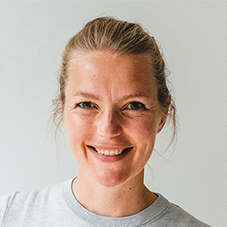
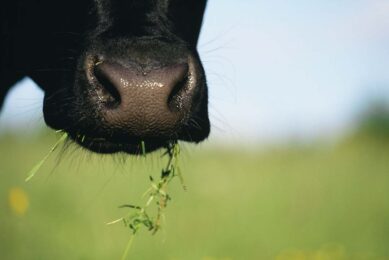
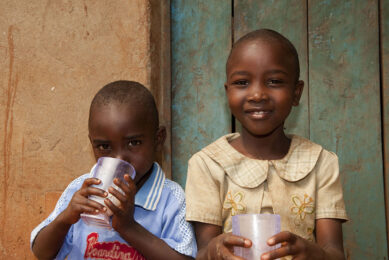
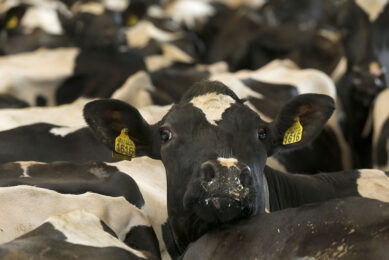
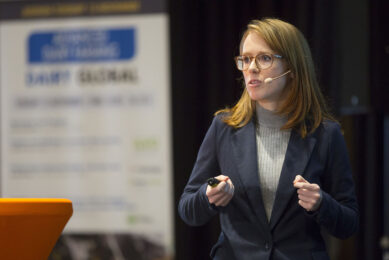
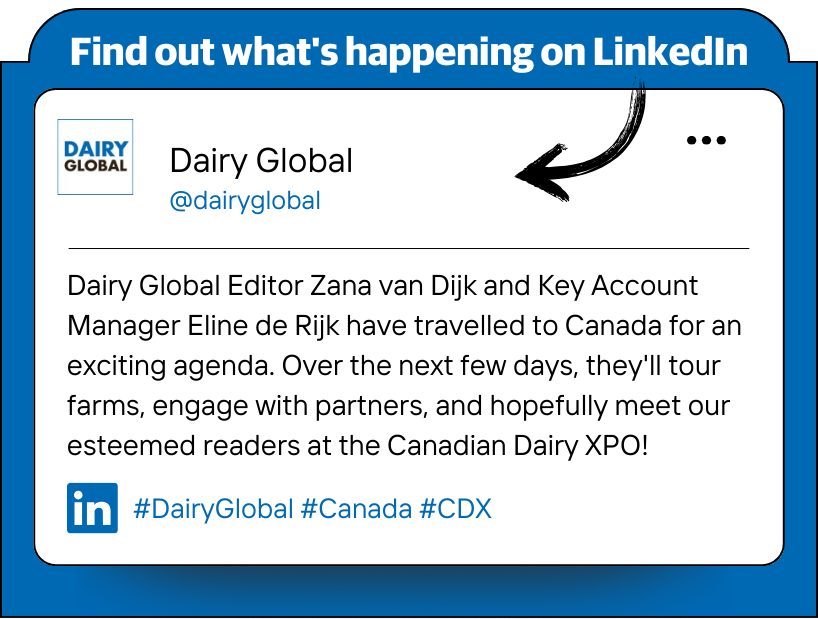



 WP Admin
WP Admin  Bewerk bericht
Bewerk bericht